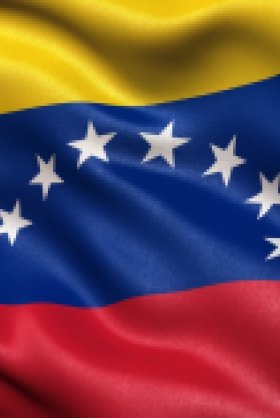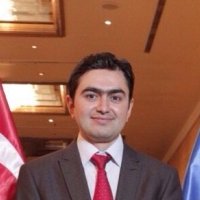Venezuela’s Authoritarian Allies: The Ties That Bind? (No. 43)






A new book published by the Latin American Program, Venezuela’s Authoritarian Allies: The Ties That Bind? explores the international dimensions of regime survival in Venezuela. Specifically, the book examines the ways that international allies of Nicolás Maduro’s authoritarian government have assisted it in surviving a calamitous period of economic decline, punishing US economic sanctions, and internal pressures for political change.
This book, edited by Cynthia J. Arnson, aims to fill an important gap in the understanding of the international dimensions of the Venezuelan crisis. It details how a range of international allies—Russia, China, Cuba, India, Turkey, and Iran—have aligned with Caracas for a variety of economic, political, ideological, and geostrategic reasons. Understanding the diversity of these interests and motivations is key to determining how, if at all, the relationships might be modified.
Authors


Director, Center for Inter-Disciplinary Studies, Icesi University, Cali, Colombia

Professor of Political Science, Instituto de Estudios Superiores de Administración (IESA) Business and Public Policy School, Venezuela

Associate Professor of Political Science and International Affairs, George Washington University

Advisor to the Foreign Minister of Panama and Asia-Latin America Expert, UNDP




Professor Emeritus, University of California, San Diego; Former Senior Director for Inter-American Affairs at the National Security Council

Founder, Latin America Risk Report & Hxagon Consulting

Latin America Program
The Wilson Center’s prestigious Latin America Program provides non-partisan expertise to a broad community of decision makers in the United States and Latin America on critical policy issues facing the Hemisphere. The Program provides insightful and actionable research for policymakers, private sector leaders, journalists, and public intellectuals in the United States and Latin America. To bridge the gap between scholarship and policy action, it fosters new inquiry, sponsors high-level public and private meetings among multiple stakeholders, and explores policy options to improve outcomes for citizens throughout the Americas. Drawing on the Wilson Center’s strength as the nation’s key non-partisan policy forum, the Program serves as a trusted source of analysis and a vital point of contact between the worlds of scholarship and action. Read more


Indo-Pacific Program
The Indo-Pacific Program promotes policy debate and intellectual discussions on US interests in the Asia-Pacific as well as political, economic, security, and social issues relating to the world’s most populous and economically dynamic region. Read more


Kennan Institute
After more than 50 years as a vital part of the Wilson Center legacy, the Kennan Institute has become an independent think tank. You can find the current website for the Kennan Institute at kennaninstitute.org. Please look for future announcements about partnership activities between the Wilson Center and the Kennan Institute at Wilson Center Press Room. The Kennan Institute is the premier US center for advanced research on Eurasia and the oldest and largest regional program at the Woodrow Wilson International Center for Scholars. The Kennan Institute is committed to improving American understanding of Russia, Ukraine, Central Asia, the South Caucasus, and the surrounding region through research and exchange. Read more


Kissinger Institute on China and the United States
The Kissinger Institute works to ensure that China policy serves American long-term interests and is founded in understanding of historical and cultural factors in bilateral relations and in accurate assessment of the aspirations of China’s government and people. Read more


Middle East Program
The Wilson Center’s Middle East Program serves as a crucial resource for the policymaking community and beyond, providing analyses and research that helps inform US foreign policymaking, stimulates public debate, and expands knowledge about issues in the wider Middle East and North Africa (MENA) region. Read more

Explore More
Browse Insights & Analysis
360° View of How Southeast Asia Can Attract More FDI in Chips and AI

A Case for a North American Common Tariff

